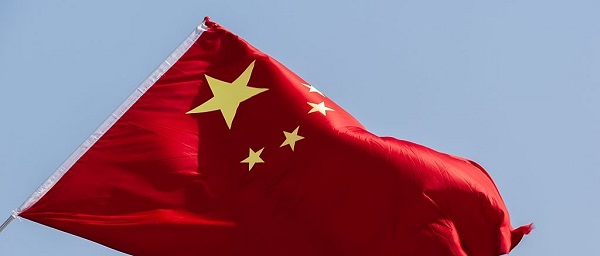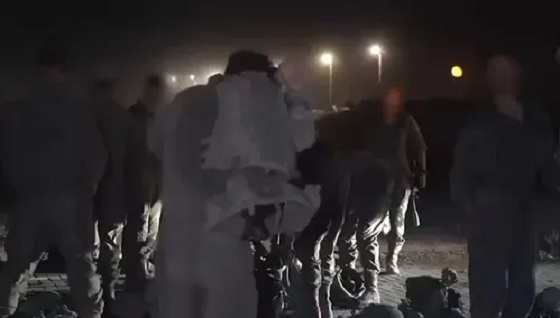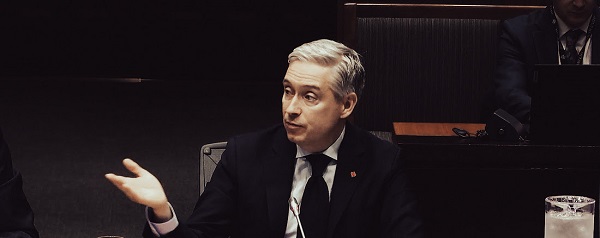espionage
FBI Director: CCP Behind Wave of Pathogen Smuggling as Third Chinese Student Charged in Michigan Lab Probe

 Sam Cooper
Sam Cooper
“In a follow up interview with FBI and ICE HSI agents, Han admitted to sending the packages and lying about their contents”
In an intensifying pattern of national security investigations targeting unauthorized biological shipments from China into Detroit, U.S. authorities on Monday confirmed the arrest of a third Chinese national allegedly involved in smuggling undeclared bio-materials into the United States—this time for use at a University of Michigan laboratory.
“This case is part of a broader effort from the FBI and our federal partners to heavily crack down on similar pathogen smuggling operations, as the Chinese Communist Party works relentlessly to undermine America’s research institutions,” FBI Director Kash Patel posted to X on Monday evening.
The latest defendant, Chengxuan Han, is a citizen of the People’s Republic of China and a doctoral student at the College of Life Science and Technology in Wuhan. She has been charged with smuggling goods into the U.S. and making false statements, according to a federal criminal complaint filed in U.S. District Court in Detroit.
From September 2024 through March 2025, prosecutors allege, Han sent four international shipments containing concealed biological materials to individuals affiliated with a University of Michigan lab. The contents were identified as Caenorhabditis elegans — roundworms commonly used in genetic and biomedical research. The packages were mis-manifested and not declared in accordance with U.S. import regulations.
On June 8, Han arrived at Detroit Metropolitan Airport on a J-1 visa and was stopped by U.S. Customs and Border Protection officers. She allegedly denied having sent any biological materials to the U.S. and made false statements about the nature of the shipments. Agents also discovered that content on her electronic device had been deleted three days before her arrival — a detail included in the federal complaint.
“In a follow up interview with FBI and ICE HSI agents, Han admitted to sending the packages and lying about their contents,” Patel commented.
“The alleged smuggling of biological materials by this alien from a science and technology university in Wuhan, China — to be used at a University of Michigan laboratory — is part of an alarming pattern that threatens our security,” said U.S. Attorney Jerome F. Gorgon, Jr. “The American taxpayer should not be underwriting a PRC-based smuggling operation at one of our crucial public institutions.”
The case marks the third time in one week that Chinese nationals connected to the University of Michigan have been charged with allegedly smuggling undeclared biological material from China into the U.S. for laboratory research.
On June 3, federal prosecutors charged Yunqing Jian, 33, a postdoctoral fellow at the University of Michigan, and her boyfriend, Zunyong Liu, 34, with conspiracy, smuggling goods into the U.S., false statements, and visa fraud. Jian and Liu are accused of importing Fusarium graminearum — a fungus considered in some scientific literature to be a potential agroterrorism threat — into the country without proper declaration.
Officials allege Liu, who conducts research on the same pathogen at a university in China, initially lied to investigators but later admitted to smuggling the fungus for research in Jian’s Michigan lab.
The Bureau is a reader-supported publication.
To receive new posts and support my work, consider becoming a free or paid subscriber.
Crime
Canadian Sovereignty at Stake: Stunning Testimony at Security Hearing in Ottawa from Sam Cooper

Canada’s Border Vulnerabilities: Confronting Transnational Crime and Legal Failures
The Bureau has chosen to publish the full opening statement of founder Sam Cooper before the House of Commons Standing Committee on Public Safety and National Security, during the session titled “Canada–United States Border Management,” held on Tuesday, October 7, 2025, and webcast live at https://www.ourcommons.ca/
https://www.ourcommons.ca/Committees/en/SECU/Meetings?utm_source=substack&utm_medium=email
I offer these remarks and recommendations with humility. I’m still learning every day. I speak regularly with numerous law-enforcement and security professionals in both the United States and Canada. For over a decade, I’ve focused professionally on the threats that transnational crime poses to Canada’s borders, institutions, and people, alongside deep reporting on our financial and legal vulnerabilities to threat networks that often include ties to hostile state activity. Canada’s recent terror designation of the India-based Bishnoi gang is important. But that particular action recognizes only one facet of the many-sided transnational fentanyl, human-trafficking, Chinese-supplied chemical precursor, weapons-trafficking, terror and extremism threats that I will discuss today.
Across hundreds of interviews with Canadian and U.S. experts, I have come to a conclusion: many Canadians — including citizens, lawmakers, and judges — do not yet fully understand the scope and nature of the problem, and also seem defensive in engaging it. And if we don’t understand it, we cannot solve it.
In these politically divisive times, I hope I can add value by relaying, clearly and fairly, what professionals on both sides of the border are saying about the cultural, legal, and political differences that impede cooperation between the United States and Canada. My reporting has emphasized Canadian enforcement challenges — not to be unduly critical of my homeland, but because I think we should focus first on the levers we control, and reforms we should have already tackled decades ago.
This isn’t my opinion only. As you know, Canadian Association Police Chiefs president Thomas Carrique recently warned that police are being asked to confront a new wave of transnational threats with “outdated and inadequate” laws “never designed to address today’s criminal landscape.” He added that Canada would have been far better positioned to “disrupt” organized crime had Ottawa acted on reforms first recommended in the early 2000s.
As RCMP Assistant Commissioner David Teboul said this year after the discovery of major fentanyl labs in British Columbia — notable for their commercial-grade chemistry equipment and scientific expertise — “There’s a need for legislative reform around how such equipment and precursor chemicals can be obtained.” More border regulations could help, but will not be sufficient absent foundational legal change.
It has long been my experience in discussions with senior U.S. enforcement experts that American and Australian police can collaborate effectively because the two nations are able to authorize wiretaps on dangerous transnational suspects within days. In Canada, that speed is impossible, and it has become a major obstacle.
As former RCMP investigator Calvin Chrustie testified before British Columbia’s Cullen Commission several years ago, due to judicial blockages arising from Charter of Rights rulings, it had become practically impossible to obtain timely wiretaps on Sinaloa Cartel targets in Vancouver. In recent years, such delays in sensitive investigations have undermined cooperation between the RCMP and the U.S. Drug Enforcement Administration in major cases of fentanyl trafficking and drug money laundering. In 2017, I was personally alerted to these longstanding concerns about the breakdown in RCMP–DEA cooperation by a U.S. State Department official.
These impeded investigations have involved the upper echelons of Chinese Triads, which maintain deep global leadership in Canada and align with Chinese state-interference networks, as well as senior Iranian and Hezbollah-linked networks operating here. Both networks are engaged in fentanyl trafficking and money laundering in collaboration with Mexican cartels active in Canada.
Canada must urgently reform what it can fix on our side.
My first recommendation is this — there is no “low-hanging fruit.” I have not spoken to a single knowledgeable Canadian officer — current or former — who believes that simply spending more on personnel, equipment, training, or border staffing will solve this. What I hear is that, from ten to twenty years ago, before the evolution of Charter-driven disclosure and delay jurisprudence in Canada, our nations enjoyed a much closer enforcement relationship. Experts point above all to two Supreme Court rulings — Stinchcombe and Jordan — as the core legal obstacles. Our Stinchcombe disclosure standards and Jordan time restrictions, as applied, disincentivize complex, multi-jurisdictional cases and deter U.S. partners from sharing sensitive intelligence that could be exposed in open court. Veterans describe enterprise files stalling for lack of approvals or because specialized techniques are denied. When police and prosecutors anticipate disclosure fights they cannot resource — and trial deadlines they cannot meet — the rational choice is to avoid the fight altogether.
I can explain in greater detail, but without question these rulings have devastated Canada’s ability to prosecute sophisticated organized crime. The result is a vicious circle of non-prosecution and impunity. To deny the need for deep legal reform is to deny the depth of the problem.
To sum up, my reporting at The Bureau has highlighted interlocking failures — legal, political, and bureaucratic — that have turned Canada into a permissive platform for synthetic narcotics and criminal finance, badly misaligning us with our Five Eyes law-enforcement and intelligence partners, and bringing us to the brink of a rupture with the United States.
Thanks for your attention, Chairman and Members.
The Bureau is a reader-supported publication.
To receive new posts and support my work, consider becoming a free or paid subscriber.
espionage
Canada’s federal election in April saw ‘small scale’ foreign meddling: gov’t watchdog

From LifeSiteNews
A new exposé by investigative journalist Sam Cooper claims there is compelling evidence that Prime Minister Mark Carney and former Prime Minister Justin Trudeau are strongly influenced by an “elite network” of foreign actors, including those with ties to communist China and the World Economic Forum.
A report from a federal watchdog confirmed that foreign meddling did occur in Canada’s April 2025 federal election on a “small scale.”
Canada’s Security and Intelligence Threats to Elections Task Force (SITE TF) said in a recent note that the “small-scale” interference that happened was hard to attribute to one particular state actor.
The task force does have the power to warn of any threats during an election. It did not do so this year despite warnings from opposition Conservatives that meddling at the hands of Communist China is a reality.
“Over the course of the election period, the SITE TF observed instances of foreign interference such as transnational repression, inauthentic and coordinated amplification of online content, and online threats such as scams and disinformation,” the report’s conclusion reads.
“These activities were observed at a small scale and often remain difficult to attribute to a foreign actor.
As reported by LifeSiteNews, election interference from China’s Communist Chinese Party (CCP) government has been a real issue in Canada in recent years.
In March, the SITE TF warned that the CCP government would most likely try to interfere in Canada’s federal election.
When it comes to the integrity of elections in Canada, there have been reported issues of meddling at the hands of foreign powers.
As reported by LifeSiteNews, a new exposé by investigative journalist Sam Cooper claims there is compelling evidence that Prime Minister Mark Carney and former Prime Minister Justin Trudeau are strongly influenced by an “elite network” of foreign actors, including those with ties to communist China and the World Economic Forum.
In light of multiple accusations of foreign meddling in Canadian elections, the federal Foreign Interference Commission was convened last year to “examine and assess the interference by China, Russia, and other foreign states or non-state actors, including any potential impacts, to confirm the integrity of, and any impacts on, the 43rd and 44th general elections (2019 and 2021 elections) at the national and electoral district levels.”
The commission was formed after Trudeau’s special rapporteur, former Governor General David Johnston, failed in an investigation into CCP allegations after much delay. That inquiry was not done in public and was headed by Johnston, who is a “family friend” of Trudeau.
Johnston quit as “special rapporteur” after a public outcry following his conclusion that there should not be a public inquiry into the matter. Conservative MPs demanded Johnston be replaced over his ties to China and the Trudeau family.
-

 Alberta2 days ago
Alberta2 days agoFact, fiction, and the pipeline that’s paying Canada’s rent
-

 International1 day ago
International1 day agoTrump gets an honourable mention: Nobel winner dedicates peace prize to Trump
-

 Business17 hours ago
Business17 hours agoCarney government plans to muddy the fiscal waters in upcoming budget
-

 Business1 day ago
Business1 day agoTrump Warns Beijing Of ‘Countermeasures’ As China Tightens Grip On Critical Resources
-

 Alberta2 days ago
Alberta2 days agoAlberta Is Where Canadians Go When They Want To Build A Better Life
-

 International2 days ago
International2 days agoTrump-brokered Gaza peace agreement enters first phase
-

 Crime1 day ago
Crime1 day agoCanada’s safety minister says he has not met with any members of damaged or destroyed churches
-

 COVID-191 day ago
COVID-191 day agoTamara Lich says she has no ‘remorse,’ no reason to apologize for leading Freedom Convoy




